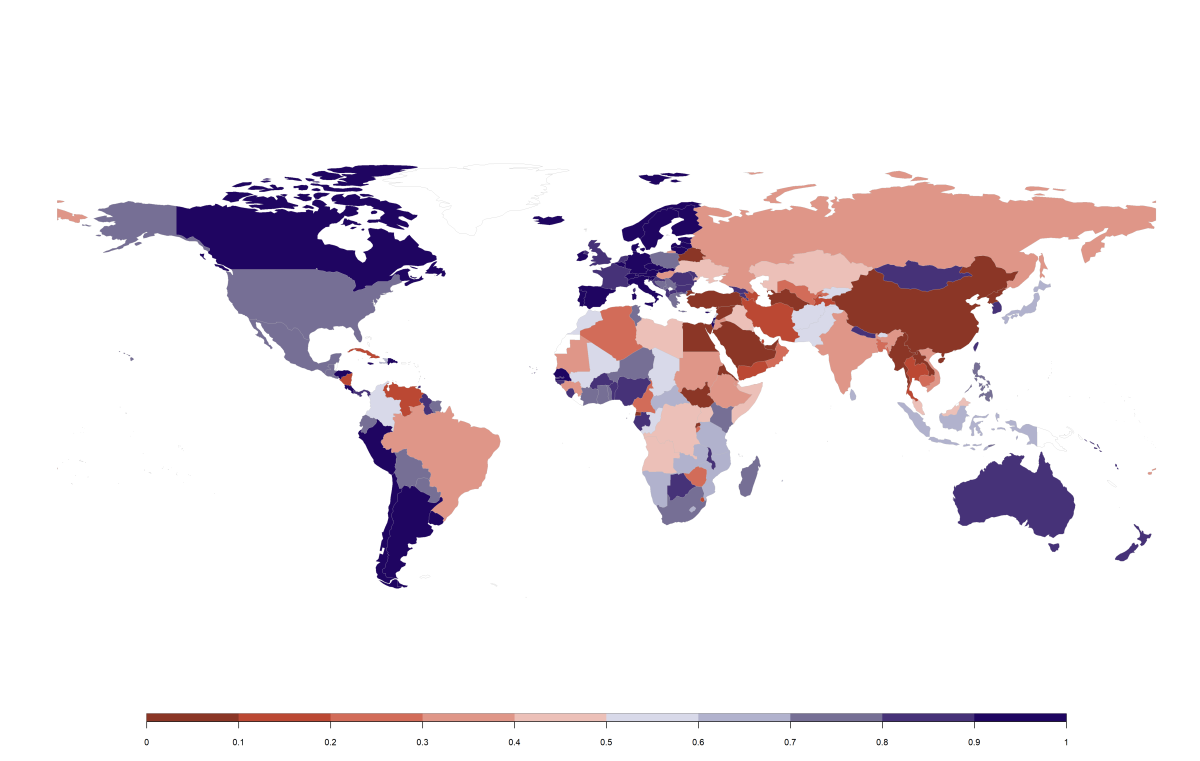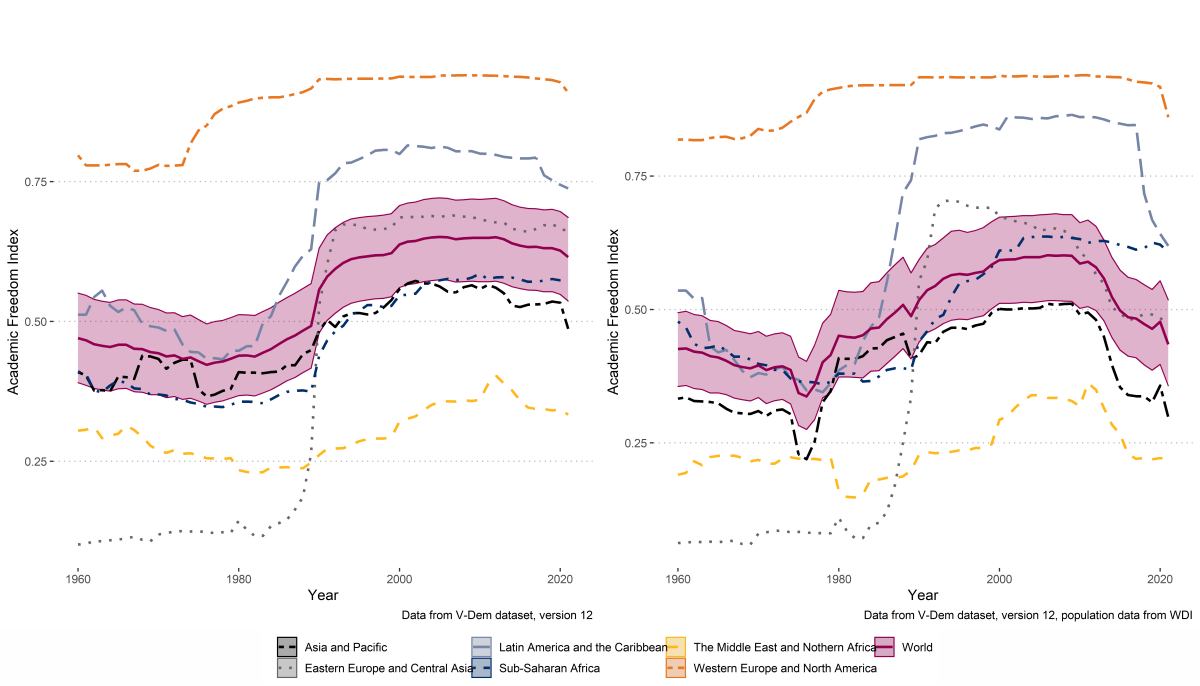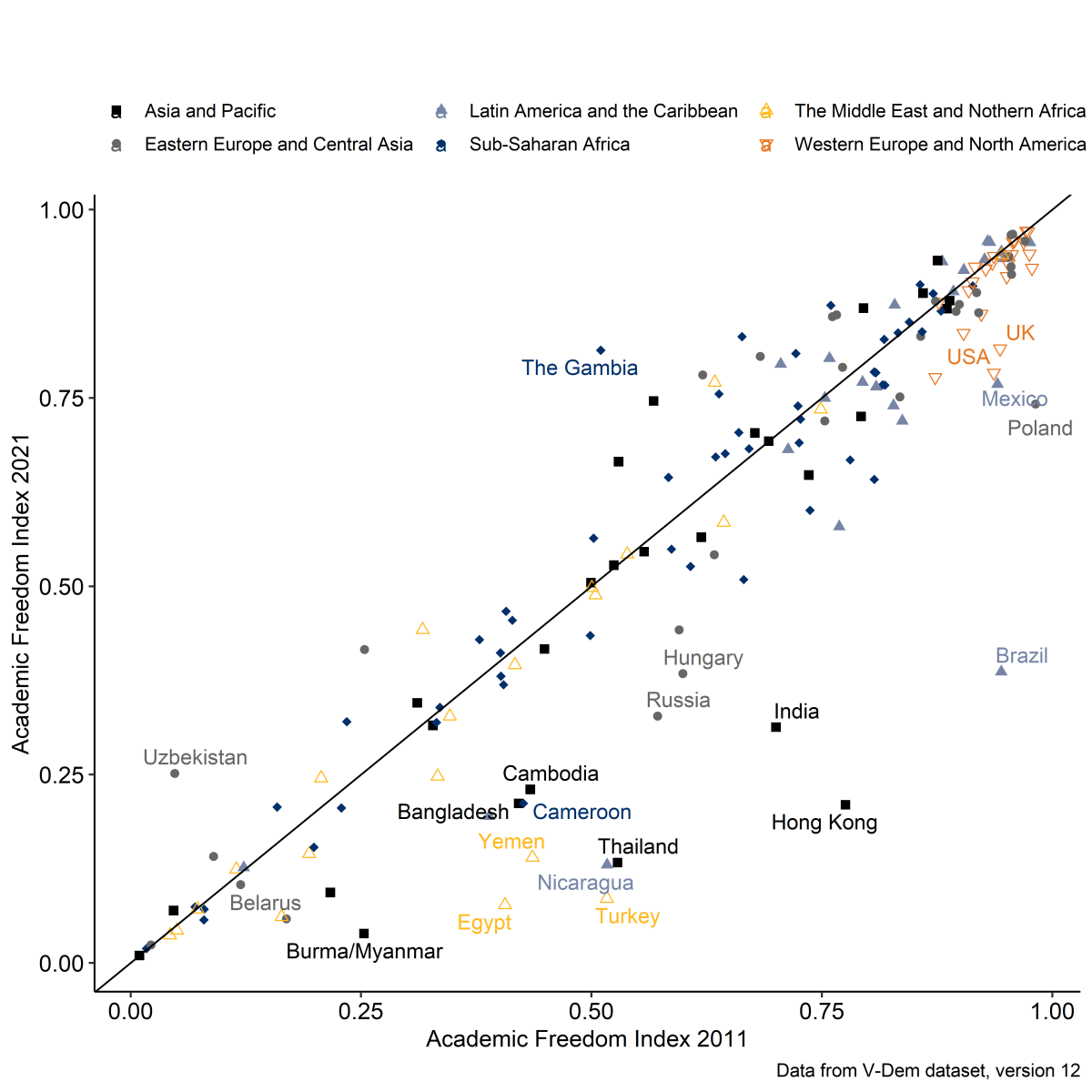Academic freedom on the decline
The new Academic Freedom Index data is now available. The 2022 report shows that academic freedom has decreased substantially in many countries.
Academic freedom is a universal human right. Yet, the 2022-release of the Academic Freedom Index (AFI) reveals that almost two out of five people worldwide live in countries where academic freedom has declined substantially during the past ten years. Countries with substantial declines in academic freedom include for example Brazil, Cameroon, India, Russia, Thailand, and the USA.
The AFI is the result of an international collaboration involving more than 2050 country experts worldwide, coordinated by researchers at the University of Gothenburg’s V-Dem Institute and the Institute of Political Science at Friedrich-Alexander-Universität Erlangen-Nürnberg (FAU).The German Volkswagen Foundation is funding the project for a total of five years.
Two out of five people worldwide affected
This year's AFI Update shows that academic freedom has decreased substantially compared to 2011 in nineteen countries and territories, and improved only in two. The declines affect 37% of the world's population, thus nearly two in five people worldwide.
Brazil, Hong Kong, India, and Turkey saw the greatest declines in academic freedom between 2011 and 2021. Notably, the deteriorations now also affect countries with a comparatively high level of academic freedom. For example, scholars and universities in Mexico, Poland, the USA, and the UK experience increasing limitations of academic freedom. Germany, on the other hand, received the highest AFI score in this year's assessment

Dr. Georg Schütte, Secretary General of the Volkswagen Foundation, stresses: "Academic freedom is a highly valued public good to which the Foundation is explicitly committed. It is a prerequisite for good science. We support the Index because it makes an important contribution to generating more knowledge about academic freedom, its mechanisms and effects worldwide."
International data collection for five indicators
The AFI provides data on academic freedom worldwide for the period from 1900 to 2021. The index rests on assessments by more than 2,050 country experts from around the world (academics who usually live in the country that they assess). These experts’ assessments are aggregated using a statistical model developed by the international V-Dem project team for its larger democracy dataset.
The AFI itself is composed of five indicators, namely the freedom to research and teach; the freedom of academic exchange and dissemination; the institutional autonomy of universities; campus integrity; and the freedom of academic and cultural expression.

Open access and visualisation
The detailed data that make up the AFI 1900-2021 are available open access to facilitate further studies. Easy to use visualisation tools are available for anyone interested, and can be consulted by university administrations, research funders and policy makers.
Links
Download the Academic Freedom Index 2022 Update at DOI: https://opus4.kobv.de/opus4-fau/frontdoor/index/index/docId/18612
Access the data at: https://www.v-dem.net/vdemds.html, and online graphing tools at: https://www.v-dem.net/graphingtools.html
A detailed introduction to the index and its indicators is available here: https://www.v-dem.net/media/publications/users_working_paper_26.pdf

Abb. 3: Länder und Territorien mit substantiellen Veränderungen im Index der Wissenschaftsfreiheit. Länder mit Namen sind diejenigen Länder statistisch relevante und substantiellen Veränderungen (>0.1) zwischen 2011 und 2021. (Grafik: FAU/V-Dem CC BY-NC-SA 4.0)
